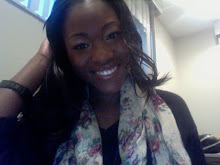Wednesday, October 14, 2009
All in Favor of an Apology...
Friday, October 9, 2009
Dear Aboriginals: We're sorry.
Here are some useful links:
Prime Minister Kevin Rudd's apology
Reactions to the apology
BBC News article following Rudd's 2008 apology
More information on the "Stolen Generations"
Wednesday, October 7, 2009
Simran Sethi & The Go Green Movement
1. The only way to save the planet is to figure out what each of us (as individuals) can do – there is no one way.
2. The environment is everything: everything that we care about exists within this ecosystem; if it is compromised, our loved ones/things are as well
3. Environmental rights are civil rights – we all deserve access to clean air and healthy food
4. The lofty goal of saving the planet is not going to happen in “10 easy steps” – it takes all of our work
5. And lastly, why should I care? What difference does this make for me? What difference does this have on my future?
Ms. Sethi claimed that the worst possible route to getting people to care about the environment is through guilt. However, she managed to make everyone in Bovard think a bit about their friendliness towards the environment, or lack thereof. Despite the guilt trip, Simran's "lecture" was more about what she's done in her life as opposed to what we need to do to help save the planet. I am highly doubtful that her presentation persuaded anyone to start an organization dedicated to Going Green, let alone buy compact fluorescent light bulbs. Even so, it was entertaining and I give Simran Sethi an A for effort.
Here is a link for a youtube channel featuring more information about Simran and her movement: The Green Editorial
The Magori Language of Papua New Guinea
According to a census taken in 2000, there are about 100 speakers of Magori in a total population of 1,012 people. Magori is an Austronesian language of Central province, Papua New Guinea.Traditionally spoken in the some small villages in east Papua New Guinea, the language was first recorded by Europeans. Much borrowing of vocabulary from a neighboring language, Mailu, can be seen in the dialect although it does not seem to have had much effect on the phonology or grammar.
Many linguists agree that Magori was on a preliminary Papua New Guinea list as endangered with two hundred speakers, who represent 40% to 60% of the ethnic group, and a few to half the children. Even though the language was reported to be used for all important functions, the people were negative to neutral about Magori. Its demise has been reported for the last decade, but linguists are finding it difficult to record the language due to the death of almost all its speakers.
Magori has been dying out as people switch to the lingua franca of Papau New Guinea (PGN): Tok Pisin. It is estimated that more than 1000 different cultural groups exist in PNG, and most groups have their own language. Because of this, many indigenous languages are becoming obsolete to make room for this new bridge to communication.
There are 15 highly endangered languages in PGN, so why is saving one of them so important? Because of its diversity, the people in Papau New Guinea take pride in their many different styles of cultural expression that have emerged. Each group has an important role in creating its own expressive forms in art, dance, weaponry, costumes, singing, music, and architecture. Aspects of these are found within PGN's small, indigenous languages and they contribute to society's overall cultural diversity.
Many linguists agree that Magori was on a preliminary Papua New Guinea list as endangered with two hundred speakers, who represent 40% to 60% of the ethnic group, and a few to half the children. Even though the language was reported to be used for all important functions, the people were negative to neutral about Magori. Its demise has been reported for the last decade, but linguists are finding it difficult to record the language due to the death of almost all its speakers.
Magori has been dying out as people switch to the lingua franca of Papau New Guinea (PGN): Tok Pisin. It is estimated that more than 1000 different cultural groups exist in PNG, and most groups have their own language. Because of this, many indigenous languages are becoming obsolete to make room for this new bridge to communication.
There are 15 highly endangered languages in PGN, so why is saving one of them so important? Because of its diversity, the people in Papau New Guinea take pride in their many different styles of cultural expression that have emerged. Each group has an important role in creating its own expressive forms in art, dance, weaponry, costumes, singing, music, and architecture. Aspects of these are found within PGN's small, indigenous languages and they contribute to society's overall cultural diversity.
Subscribe to:
Comments (Atom)

